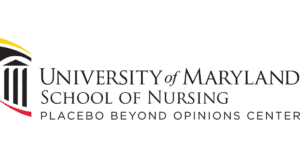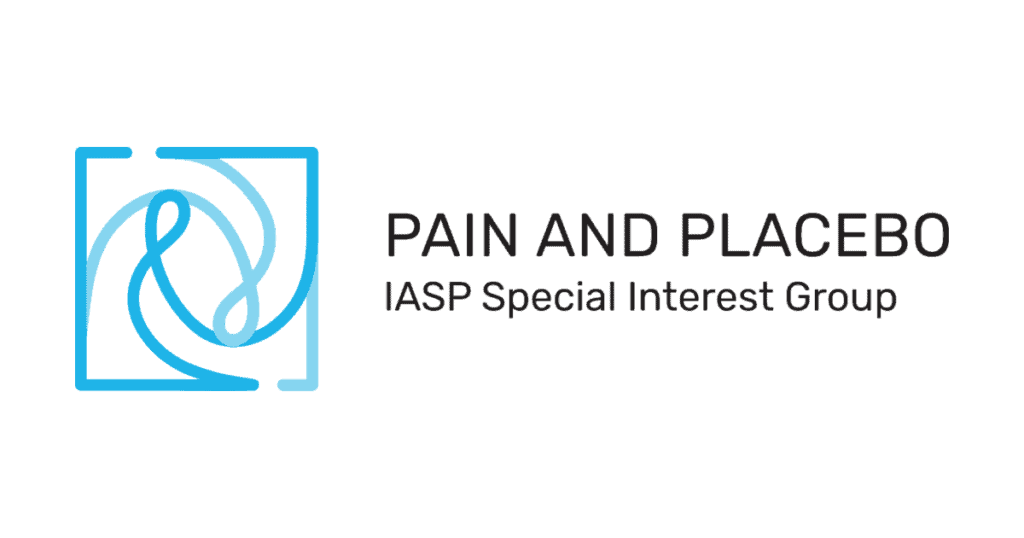Date: Monday, May 13, 2024, 3:00 p.m. to 4:00 p.m., Eastern (US) Time
This webinar is being produced through a collaboration of the IASP’s Pain and Placebo Special Interest Group and the University of Maryland, Baltimore, USA – in particular – the University of Maryland School of Nursing’s Placebo Beyond Opinions Center. Both groups are aligned on advancing unbiased knowledge of placebo effects by promoting interdisciplinary investigation of the placebo phenomenon and nurturing placebo research.
THIS WEBINAR IS UNIQUE IN THAT IT IS BEING HOSTED (BOTH IN-PERSON AND VIRTUALLY) BY THE UNIVERSITY OF MARYLAND. AS SUCH, A LINK TO THE WEBINAR WILL NOT BE DISTRIBUTED UPON REGISTRATION – RATHER – A LINK TO THE WEBINAR WILL BE DISTRIBUTED TO REGISTRANTS VIA EMAIL BOTH 24 HOURS AND 1 HOUR PRIOR TO THE WEBINAR. FOR ANY QUESTIONS, PLEASE FEEL FREE TO EMAIL GREGORY CARBONETTI AT GREGORY.CARBONETTI@IASP-PAIN.ORG.

The IASP defines pain as “an unpleasant sensory and emotional experience associated with, or resembling that associated with, actual or potential tissue damage” to better articulate the biopsychosocial dimensions of this phenomenon. While our understanding of pain has greatly evolved over the past decades, there are still fundamental questions that need to be addressed, including its psychological components.
Suggestions about hunger can generate placebo effects on hunger experiences, but the underlying neurocognitive mechanisms are still unknown. Despite the ample evidence for appetitive placebo effects on behavior, there is still no direct empirical evidence for when, where, or how in the brain a placebo intervention – that combines the administration of an inactive substance with a verbal suggestion about its effectiveness – influences the experience of appetitive interoceptive outcomes (such as hunger and associated economic behavior). Join us as we learn how placebo intervention can affect hunger-addressing economic behavior.
Participants include:
- Liane Schmidt, PhD, INSERM, France
- Luana Colloca, MD, PhD, University of Maryland School of Nursing, USA (host)
About the Presenter
 Liane Schmidt, PhD, is a faculty member at INSERM in Paris, France. She achieved her PhD at the Pierre et Marie Curie Paris VI University in France for her investigation of the neuropsychological determinants of incentive motivation in humans. In her current work, she investigates how beliefs about oneself, the world, and the future bias decision-making and motivation in health, depression, or obesity. Liane’s writings have been published in international peer-reviewed journals such as Science, the Journal of Neuroscience, Nature Neuroscience, and Psychological Science. You can visit her faculty information page to learn more here.
Liane Schmidt, PhD, is a faculty member at INSERM in Paris, France. She achieved her PhD at the Pierre et Marie Curie Paris VI University in France for her investigation of the neuropsychological determinants of incentive motivation in humans. In her current work, she investigates how beliefs about oneself, the world, and the future bias decision-making and motivation in health, depression, or obesity. Liane’s writings have been published in international peer-reviewed journals such as Science, the Journal of Neuroscience, Nature Neuroscience, and Psychological Science. You can visit her faculty information page to learn more here.
About the Host
 Luana Colloca, MD, PhD, is an NIH-funded physician-scientist who conducted ground-breaking studies that have advanced scientific understanding of the psychoneurobiological bases of endogenous systems for pain modulation in humans, including the discovery that the vasopressin system is involved in the enhancement of placebo effects with a dimorphic effect. Currently, her team conducts basic and translational research on genomics of orofacial chronic pain, brain mechanisms of expectancy – and observationally induced hypoalgesia – and immersive virtual reality. Her research has been published in top-ranked international journals including Biological Psychiatry, Pain, Nature Neuroscience, JAMA, Lancet Neurology, Science, and NEJM. The impact of her innovative work is clear from her outstanding publications, citation rate, numerous invited lectures worldwide, and media featured by The National Geographic, The New Scientist, Washington Post, Boston Globe, The New Yorker, Nature, The Guardian, The Wall Street Journal, and News and World Reports.
Luana Colloca, MD, PhD, is an NIH-funded physician-scientist who conducted ground-breaking studies that have advanced scientific understanding of the psychoneurobiological bases of endogenous systems for pain modulation in humans, including the discovery that the vasopressin system is involved in the enhancement of placebo effects with a dimorphic effect. Currently, her team conducts basic and translational research on genomics of orofacial chronic pain, brain mechanisms of expectancy – and observationally induced hypoalgesia – and immersive virtual reality. Her research has been published in top-ranked international journals including Biological Psychiatry, Pain, Nature Neuroscience, JAMA, Lancet Neurology, Science, and NEJM. The impact of her innovative work is clear from her outstanding publications, citation rate, numerous invited lectures worldwide, and media featured by The National Geographic, The New Scientist, Washington Post, Boston Globe, The New Yorker, Nature, The Guardian, The Wall Street Journal, and News and World Reports.


